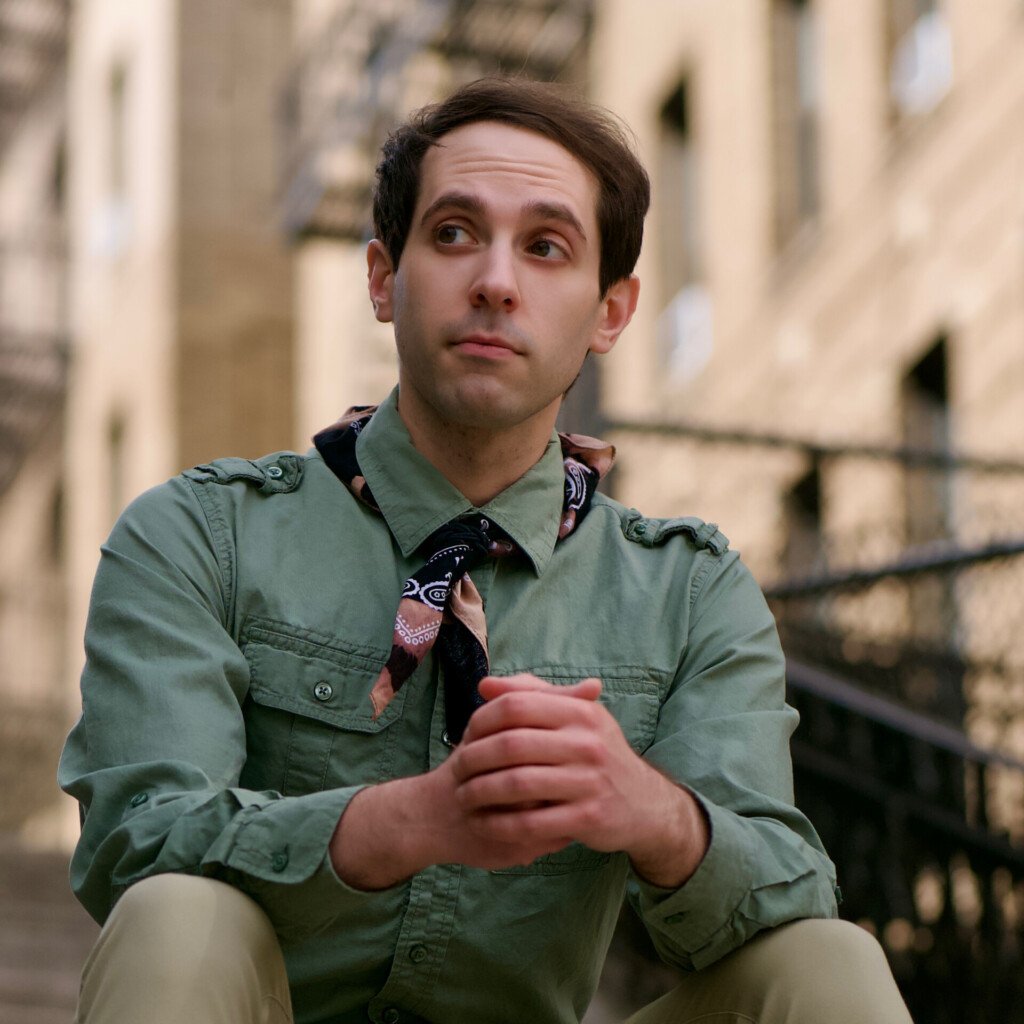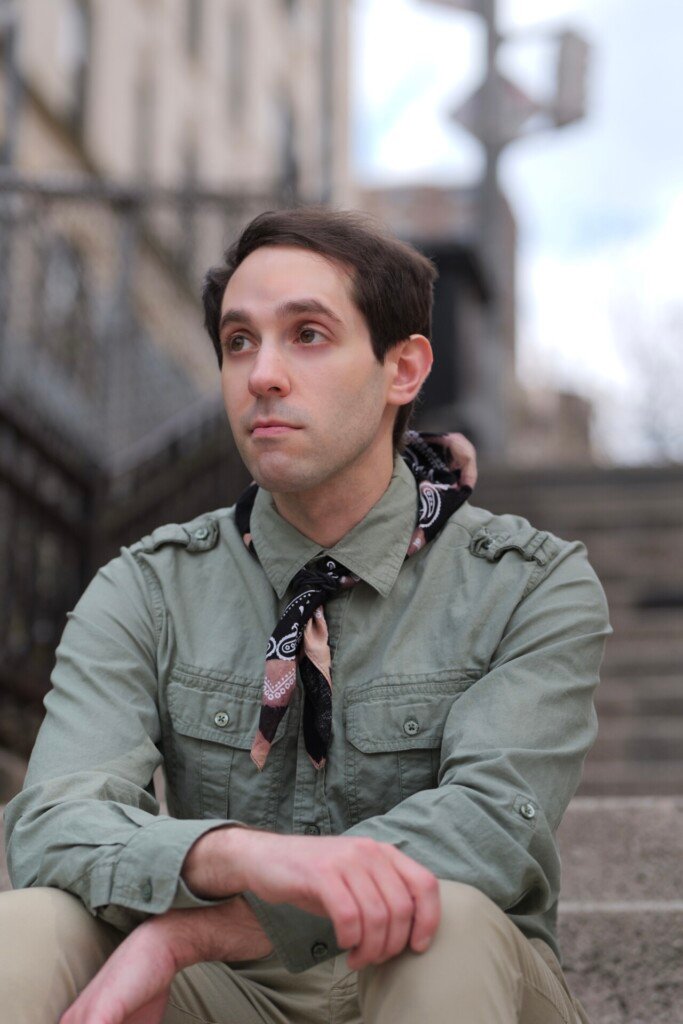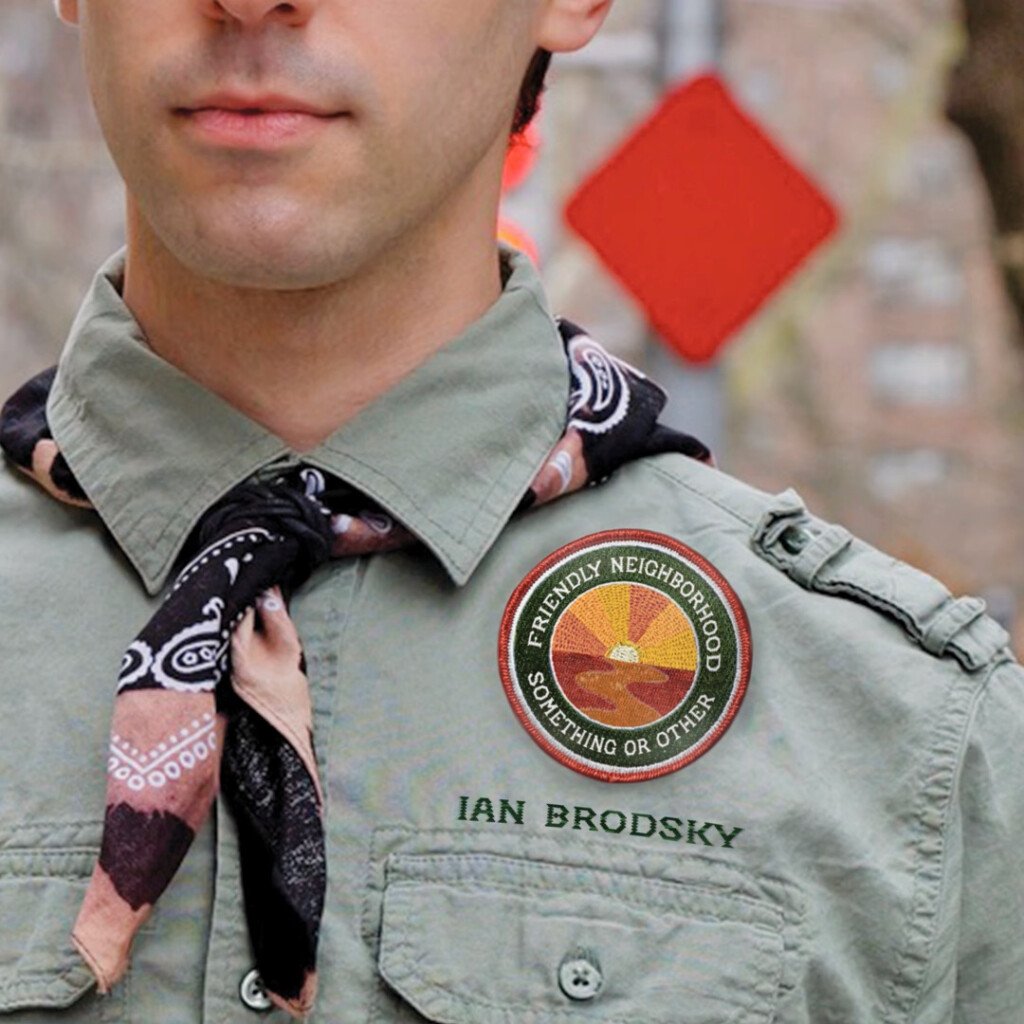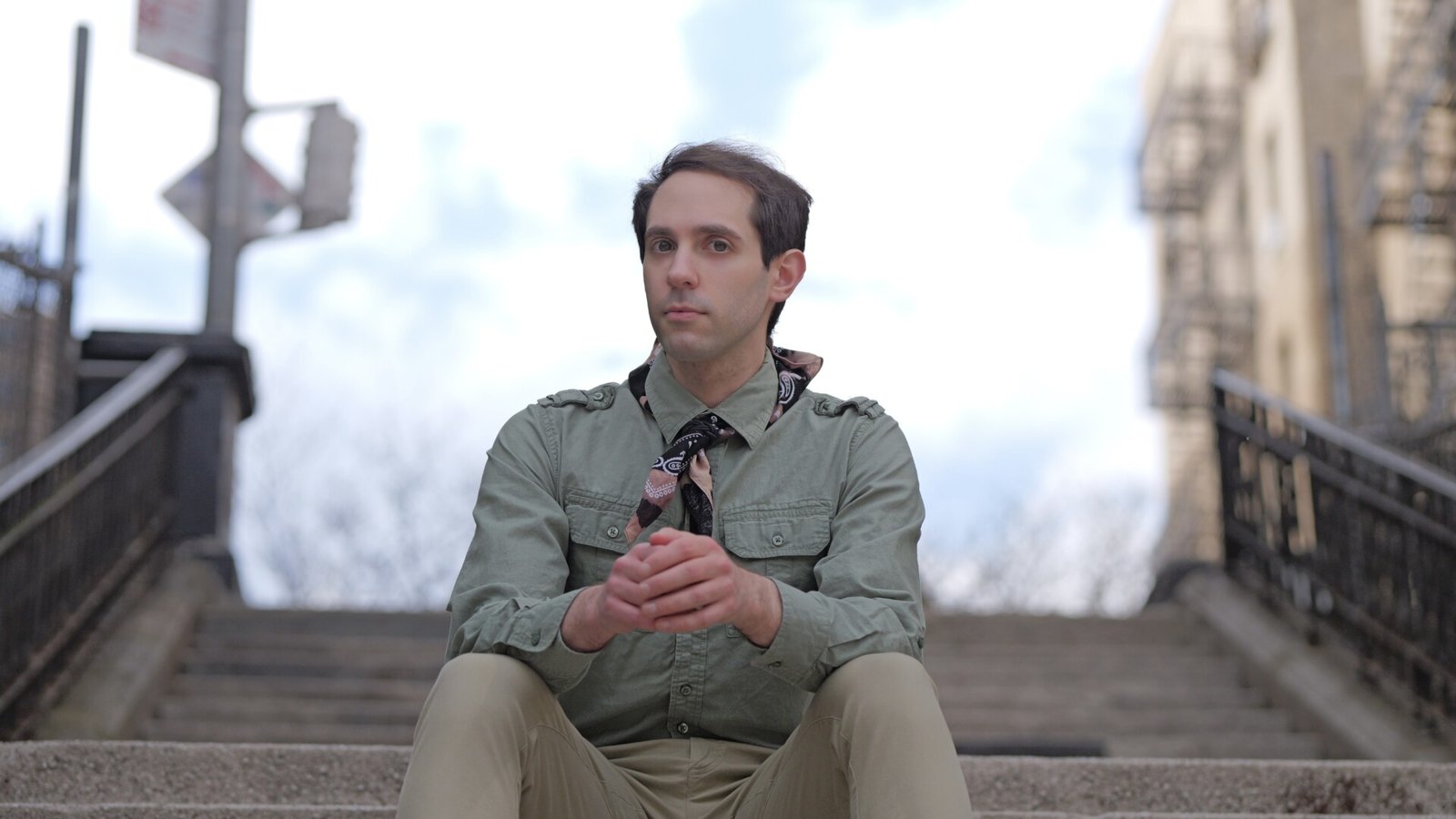Ian Brodsky is a New York-based Musician/Actor/Dancer/etc. Established fiddler from folk rock starlet Jo Kroger’s band and the John Carney film, “Begin Again,” Ian has stepped out with his own mix of danceable bops and introspective ballads, meditating on the ways we grow and the ways we stay the same. Somewhere from the alt-folk-rock cross section of Ben Folds, Fiona Apple, Glen Hansard and Sara Bareilles, his quick-witted memoirs of an underdog are sure to give you something to sing along to on the go. Like it or not, you’re going to get to know him a little better. Check out the exclusive interview below:

1. Your roots can often shape your journey. Can you share a story or moment from your early life that had a significant impact on your path into music?
Ian Brodsky: While music has always been an integral part of my life – I started playing violin when I was seven, I’ve always been a theatre person – a lynchpin on my path was when my mom played Joni Mitchell’s Dreamland album in the car. It was around the same time as when my chorus teacher taught us “Big Yellow Taxi.” Between that and the album, I was learning what music could be. That’s where I first heard “California,” “Carey,” and that incredible orchestral arrangement of “Both Sides Now.” It’s definitely been an anchor as I figured out who I am as a Singer/Songwriter. She’s one that I can always trace back to.
2. Did your musical journey begin with formal training, or was it more of a personal exploration? How has that shaped your unique approach to your craft?
Ian Brodsky: Certainly, it’s a mix of both. My parents say that I had a musicality and rhythm at an early age. I definitely subscribed to classical training when I was learning violin, piano, voice, acting, etc. The training has always been a foundation to lean on, but from there you have to figure out how you bring yourself and your experience to the work. When we were all locked down in 2020, the personal exploration was all I had. I was reflecting on where I came from and how I got to where I was and out of that came my first album, Clever but Devastating. As proud as I was of that album, it was validating to get such good feedback from it so I could continue writing and mining pieces of myself to share on this new one.
3. Who were some of the most influential figures in your early musical life, and how did they inspire your sound?
Ian Brodsky: It turns out there are a lot. I mentioned Joni Mitchell and my love for classical and theatrical music. I remember being so excited when I saw Alicia Keys and Sara Bareilles making popular music behind a piano. I remember seeing Vampire Weekend perform “A-Punk” on SNL and being blown away by it – another moment that opened my mind to what music could be. John Mayer’s Continuum and Jason Mraz’s We Sing, We Dance, We Steal Things. I think a lot about the 2000’s pop/punk/emo bands – Paramore, Panic! At the Disco, Fall Out Boy – these are less obvious, but it turns out they’re very much in my musical DNA.
My first acting job was in Begin Again, John Carney’s follow up to Once, so I got really into Glen Hansard in college. I spent a good amount of time around folk musicians who had a big influence on my taste. The obvious ones that show up in my music are two of my favorites, Ben Folds and Fiona Apple.
All these artists make music that feel at home to me – something about it just sits with my soul and that was affirming for me when I started writing. Glen Hansard and Fiona Apple inspired me to embrace the emotional, angry, devastated parts of me. Singers like Jason Mraz, Brandon Flowers, and Joni Mitchell assured me that I use all the parts of this theatrical tenor voice I’ve been training for years and soar through lyrics. Then, with the jaunty piano of Sara or Ben song, and I’m in the center of that Venn diagram.
4. What do you believe sets your music apart? How would you describe your sound to someone discovering you for the first time, and what emotions or experiences do you hope to evoke in your listeners?
Ian Brodsky: You know, it’s hard for me to answer this without feeling like I’m a complete narcissist. But what people have told me is that they relate to my songs in an unexpected emotional way. Mixing this with the tongue-in-cheek humor combined with a theatrical storytelling influence gives it a relatability without being overwrought, to paraphrase a review of this album. So my sound is definitely a mix of Ben Folds-like Alt Rock plus Folksy comfort, but he’s still a theatre kid.
I’m always championing the underdog. That’s definitely a through line in my work. So not only do I hope people relate to the introspective longings, I hope they feel empowered to be their best selves regardless of (or even in spite of) what others have told them.

5. For most artists, originality is first preceded by a phase of learning and, often, emulating others. What was this like for you? How would you describe your own development as an artist and music maker, and the transition towards your own style, which is known as ROCK?
Ian Brodsky: I definitely leaned on my influences when figuring out who I was as a singer/songwriter. I was playing in my friend Jo Kroger’s band, doing shows with her and watching other indie bands at work when I started writing songs on my own. My friend was in a band called Upstate at the time and I vividly remember leaning on one of their songs when I was figuring out my first. Once more of my own songs started coming to me, I was able to figure out how I use those influences as a tool while delivering something that was so honestly me.
When I started writing Friendly Neighborhood Something or Other, I felt like I could have more fun with all of it. I was definitely growing into a happier person, and I feel like this album is very still true to who I am now while being expansive and leaning into the alt-rock sound. This album is about stepping into your power and that was a guiding light for how I wanted it to sound. So this time around, I got to rely less on the reference tracks and more on the sound my band and I created over the last few years of working together.
6. Music often transcends entertainment. What’s your view on the role and function of music as political, cultural, spiritual, and/or social vehicles – and do you try and affront any of these themes in your work, or are you purely interested in music as an expression of technical artistry, personal narrative, and entertainment?
Ian Brodsky: All art is political in some way, shape, or form, and even if I’m not actively trying to hold a mirror, I know that it does have an impact on people. I write a lot about mental health and what it means to be a man today. “Scout’s Honor” is my most overt song about it, but a lot of men have reached out to me about the ways my songs resonated with them. We’re starting to talk about the need to de-stigmatize mental healthcare for men, but we have a long way to go. So while my songwriting was initially an expressive way for me to suss out everything that was going on in my head, it has helped people understand they’re not alone. That means a lot to me.
7. Can you walk us through your creative process? From the first spark of an idea to the finished track, what’s the most essential part of your process, and how do collaboration or external influences shape your work?
Ian Brodsky: The short answer is that my internal monologue never shuts up. Truly. But from that monologue sometimes comes a clever or pithy phrase that I write down, and the song grows out of that. I know it’s worthy of bringing to my band if I can finish writing it, successfully teach it to myself, and get it stuck in my head. If I can’t do one of those three, it’s probably not worth it. If I’m having writer’s block on a song, it’s probably not the right song. The right one usually comes out of it down the road. Having the time and space to sort my thoughts out is probably the most essential part of this. It took me a few years to write this album in part because there was a while where I was so burnt out that I couldn’t bring myself to even think about writing. Once I cured that, I wrote half the album.
I’m very lucky that the musicians I work with are good friends of mine so there’s an immediate trust when I bring them a song. I try my best to let them run with their instincts and then maybe we shape the specifics together. They’re all incredible collaborators. One of my best friends, Paul Rigano, wrote the horn arrangements on the album. Having known him for so long,
we were able to have fun and figure it out together. And with so much love going into the work, the egos largely stepped aside (I think/I hope) and we created something I’m just so proud of.
8. What’s been the most challenging hurdle in either your personal life or music career, and how has it shaped you as an artist?
Ian Brodsky: Definitely the burnout. Like I mentioned, there was period of time where I was so burnt out that I couldn’t write, and picking up an instrument felt like a chore. This often goes hand in hand with anxiety or depression for me. And while anxiety/depression has helped me write some great songs, the burnout made it feel impossible. I had to rest to rest and steadily find my way back. So it set the album back a bit, but it resulted in giving myself the time I needed to write the album I set out to make. It reminded me to be kinder to myself. That’s one of the “lessons I keep learning [that] bear repeating.”
9. On the flip side, what moment or achievement in your career so far has made you feel the proudest, and why? And let’s talk about your latest release and future plans.
Ian Brodsky: Producing “Trash Panda.” I love telling this story: my friends and I lived in an apartment in college where a painting of a panda hung over the trash. So the Trash Panda was kind of an unofficial mascot. One of my friends asked the group chat if we wanted to get Trash Panda tattoos. I said no, but I’ll write a song.
I knew that I wanted it to be a celebration of my friends, and I knew I wanted it to be more deliberately upbeat than my first album. The song came to me quickly, and when we first performed it live, we knew we had something special. I immediately knew how I wanted it to sound. So while we were honing it at live shows, I was planning production, figuring out horn arrangements and harmonies with Paul, and laying down my tracks. I’m almost afraid I’m misremembering it but putting it all together felt so seamless and easy, everything felt right. I remember I was in the middle of folding laundry and felt inspired to give the lead vocal one last pass. And when I did, it felt complete. I get weird with watching and listening to myself, but I am so proud of that track.
I didn’t know if I’d write another album but that was the beginning of Friendly Neighborhood Something or Other. This album is a collection of songs that celebrate our growth, our loved ones, and our power. We’re about to play our album release show at the Mercury Lounge in NYC on 7/21/25. All I want to do now that it’s out is play more shows and share it with as many people as possible. Performing live has always been my favorite thing to do. So if you know where I can put on a show, hit me up @ibroski.
10. Creative work in a studio or home environment, or interaction with a live audience? Which of these two options excites you most, and why?
Ian Brodsky: For me, performing live has always been the most exciting thing. Maybe it’s the theatre background, but I love having an audience and playing the songs in real time with my band. I’m such a fan of them. I love feeding off their energy, I love the banter, I love that anything can happen, and I love that we can always discover something new that breathes a new life into the songs. It’s just my favorite thing to do.
STAY IN TOUCH:
FACEBOOK | INSTAGRAM | SPOTIFY | BANDCAMP | TIKTOK | WEBSITE | YOUTUBE


